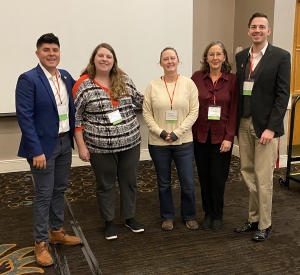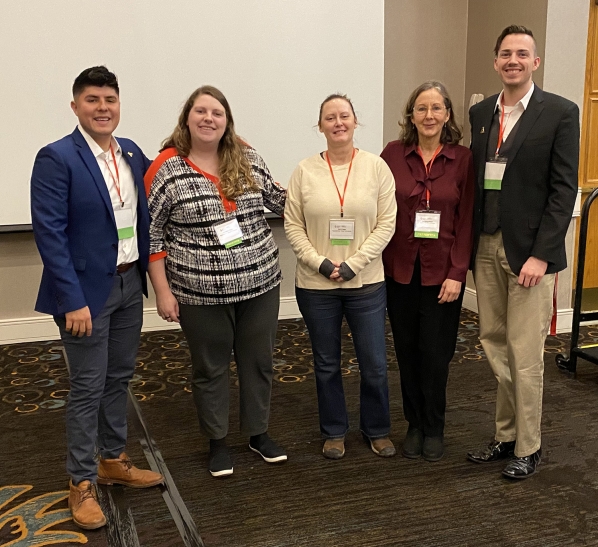Graduate students, Kari Cragg ’01, Michael Jefferies ’19, Carolina Parris ’19 and Alex Trejo-Sanchez ’19, along with Dr. Susan Hedges, an assistant professor in Reich College of Education’s (RCOE) Department of Reading Education and Special Education (RESE), gave presentations at the 2020 North Carolina Council for Exceptional Children conference (NC-CEC). NC-CEC is the state professional organization for special educators and others interested in supporting students with disabilities. The conference was held February 27-28, 2020 in Greensboro, North Carolina.
“This was my first experience as a presenter at a conference,” said Cragg. “I enjoyed the challenge of thinking about who I was presenting to, their questions, and reactions.”
“The presenting time went by fast and was very well received,” she continued. “I now have a better appreciation for the process and for other presenters.”
 (From left to right in photo) Alex Trejo-Sanchez, graduate student in special education and currently teaching at Forsyth Academy; Carolina Parris, graduate student in special education; Kari Cragg, graduate student in special education; Susan Hedges, Assistant Professor, Department of Reading Education and Special Education; Michael Jeffries, graduate student special education and currently teaching at Unionville Elementary.
(From left to right in photo) Alex Trejo-Sanchez, graduate student in special education and currently teaching at Forsyth Academy; Carolina Parris, graduate student in special education; Kari Cragg, graduate student in special education; Susan Hedges, Assistant Professor, Department of Reading Education and Special Education; Michael Jeffries, graduate student special education and currently teaching at Unionville Elementary.
“I always enjoy participating in this conference with my students watching them build their teacher leader muscles,” said Hedges. “It helps make a connection between what they have been learning in class and its relevance to the field.”
“Also, they get to meet with special educators from around the state and learn about the issues that matter to them,” she added.
About the Conference Presentations
Community Resource Mapping to Support Families and Strengthen School-Community Relationships
Presented by Dr. Susan Hedges, Michael Jeffries, and Alex Trejo-Sanchez
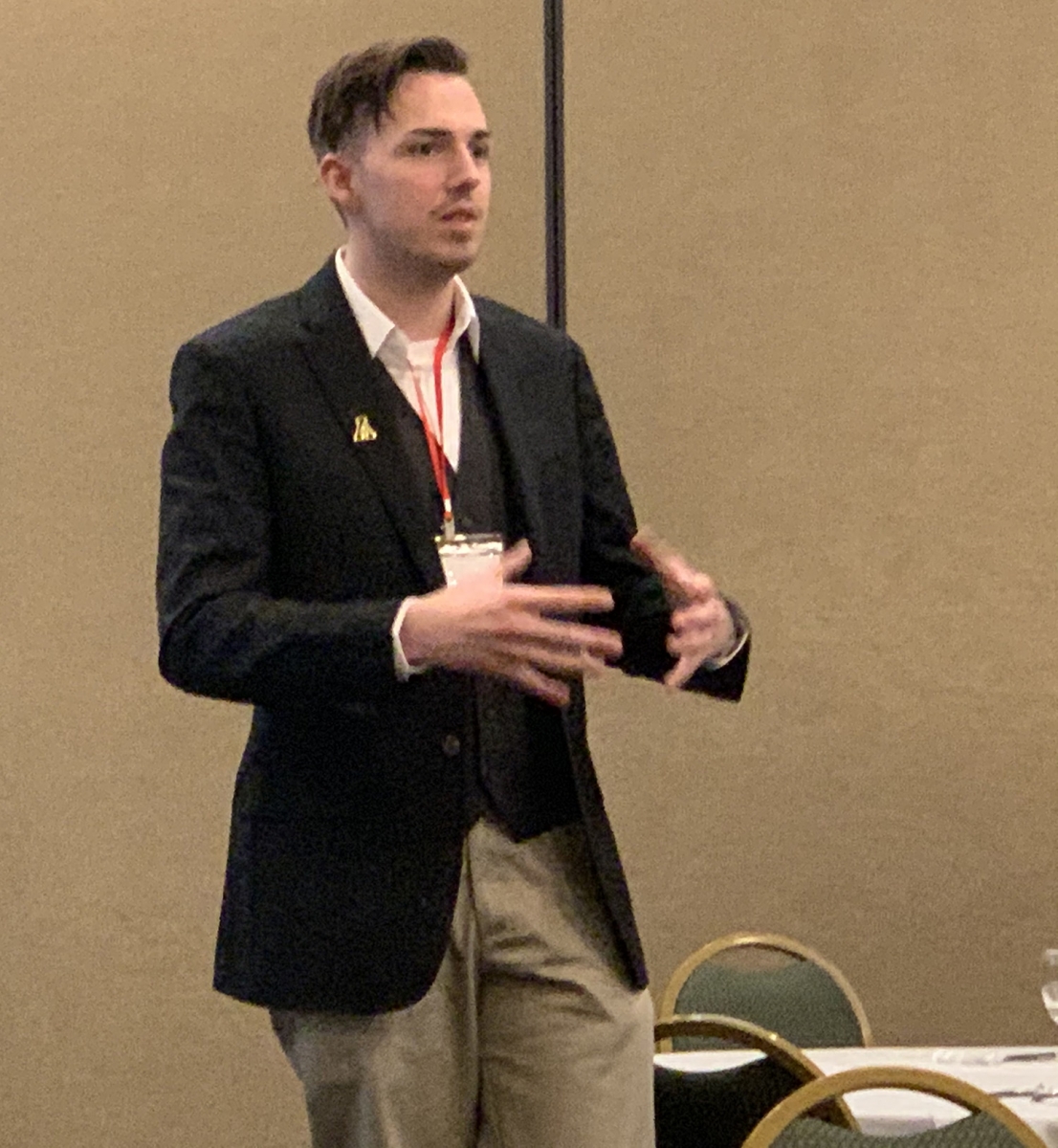
Jeffries completed a B.S. in special education from Appalachian and is currently pursuing his graduate degree in special education. He is originally from Monroe, North Carolina, and teaches at Unionville Elementary School in Monroe. This is his second year presenting at the conference.
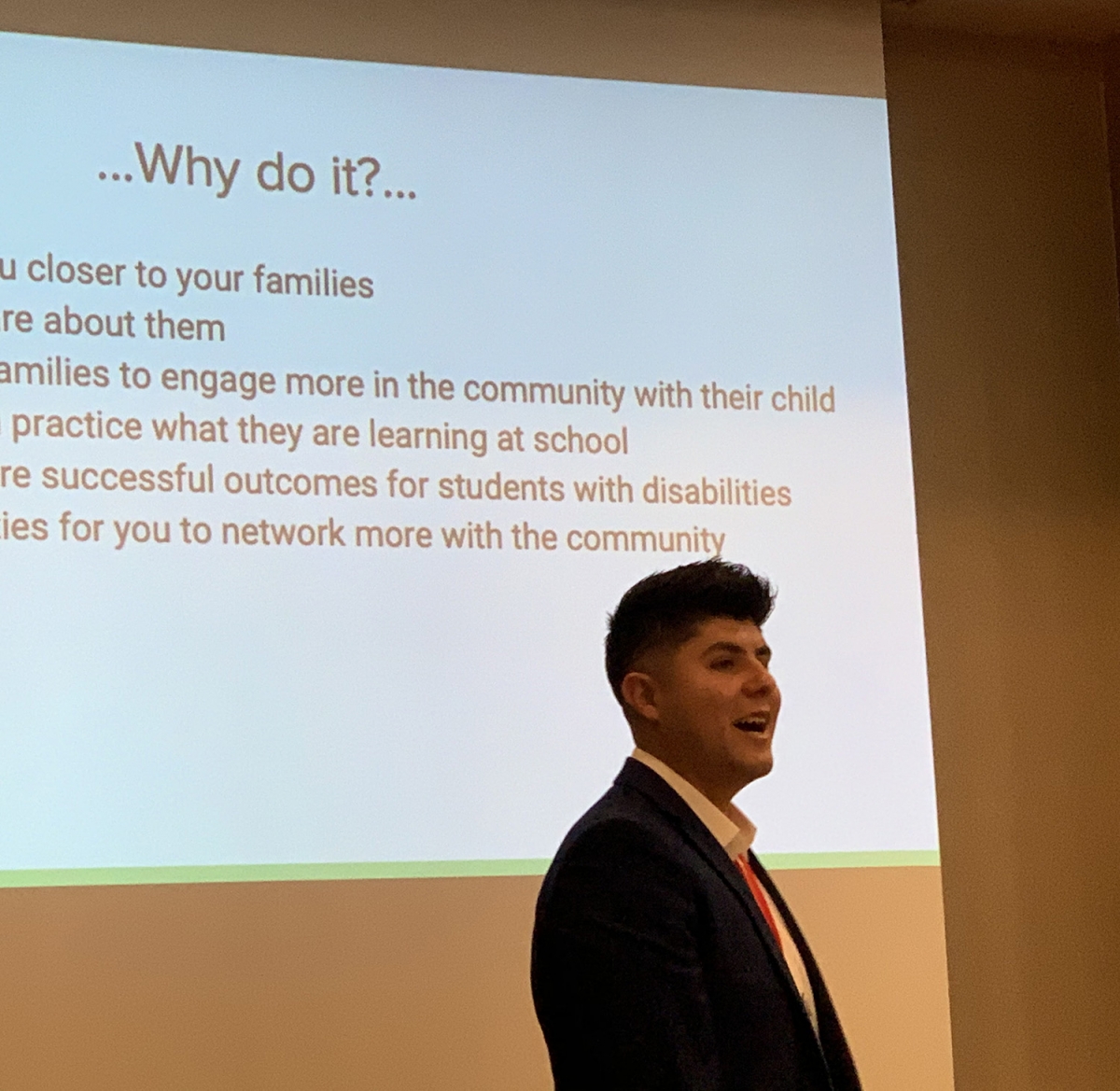
Trejo-Sanchez completed a B.S. in special education from Appalachian and is currently pursuing his graduate degree in special education. He is originally from Lincolnton, North Carolina, and teaches at Forsyth Academy in Winston-Salem, North Carolina. This is his second year presenting at the conference.
About the presentation, Jeffries and Trejo-Sanchez said, “Community Resource Mapping is considered a ‘best practice’ for the transition process, but really it is a best practice for all schools and communities. Families of exceptional children often only have the support of a special educator to help them navigate their journey of raising their child. Being knowledgeable of resources that can help families integrate more fully into the community is a valuable tool for the special educator toolkit.”
The participants in their presentation learned how to create a Community Resource Map.
Oppositional Defiant Disorder (ODD): A Review of the Latest Strategies to Use in the Classroom
Presented by Kari Cragg
Cragg completed a B.S. in recreation management from Appalachian and is currently pursuing her graduate degree in special education. She is originally from Sugar Grove, North Carolina. This is her first year presenting at the conference.
According to Cragg, “Oppositional Defiant Disorder (ODD) is one of the most common Emotional and Behavioral Disorders (EBD) in young children, with an estimated prevalence of 17%. It is also one of the most challenging behaviors for educators to manage.”
Cragg presented an overview of the latest evidence-based practices to support these students.
Using Time Delay to Teach Organization of Print in Literacy Instruction
Presented by Carolina Parris
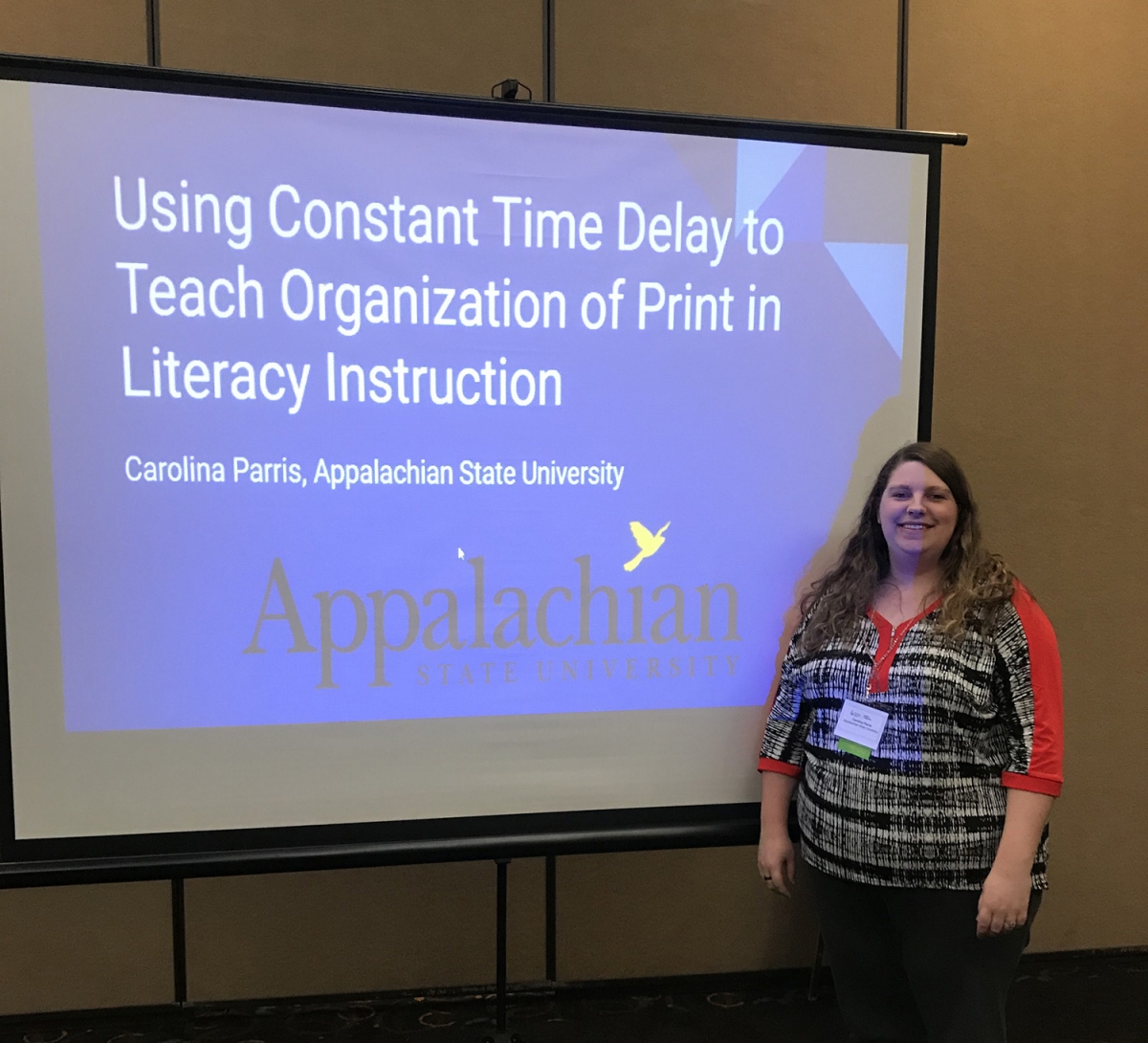
Parris completed a B.S. in special education from Appalachian and is currently pursuing her graduate degree in special education. She is originally from Hickory, North Carolina. This is her first year presenting at the conference.
“Attendees learned the different types of time delay, as well as how to use time delay in a classroom setting,” noted Parris. “Lastly, they watched a demonstration of how to implement it in the classroom.”
About the North Carolina Council for Exceptional Children
The worldwide mission of The Council for Exceptional Children is to improve educational outcomes for individuals with exceptionalities.
The Council for Exceptional Children (CEC) is the largest international non-profit professional organization dedicated to improving educational outcomes for individuals with exceptionalities, students with disabilities, and students who are gifted.
CEC advocates for appropriate governmental policies, sets professional standards, provides continual professional development, and advocates for newly and historically underserved individuals with exceptionalities.
CEC also helps professionals obtain the conditions and resources necessary for effective professional practice.
We [NC-CEC] provide state and local support in the way of an annual conference, regional trainings, and an electronic newsletter. We offer awards to recognize outstanding K-12 students with disabilities, leaders in the field of special education, and K-12 teachers. Scholarships are available for preservice teachers, and mini-grants are available for current NC-CEC members.
